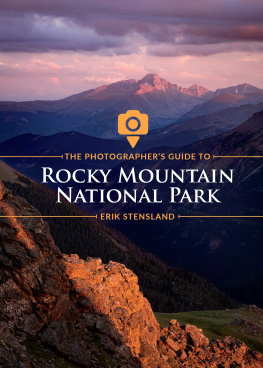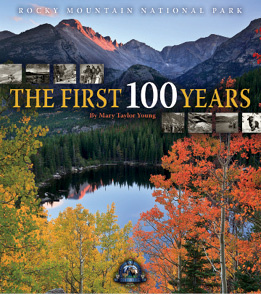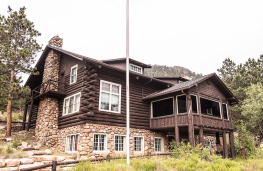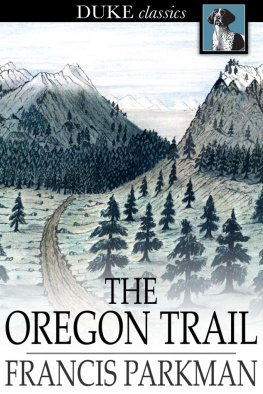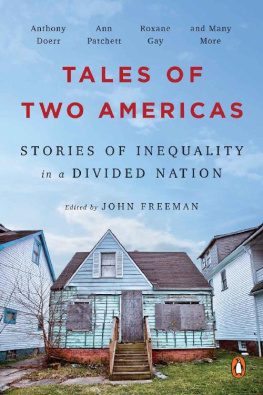Persistent Progressives
The Rocky Mountain Farmers Union
John F. Freeman
University Press of Colorado
Boulder
2016 by University Press of Colorado
Published by University Press of Colorado
5589 Arapahoe Avenue, Suite 206C
Boulder, Colorado 80303
All rights reserved
Printed in the United States of America

The University Press of Colorado is a proud member of Association of American University Presses.
The University Press of Colorado is a cooperative publishing enterprise supported, in part, by Adams State University, Colorado State University, Fort Lewis College, Metropolitan State University of Denver, Regis University, University of Colorado, University of Northern Colorado, Utah State University, and Western State Colorado University.
This paper meets the requirements of the ANSI/NISO Z39.48-1992 (Permanence of Paper).
ISBN: 978-1-60732-432-4 (cloth)
ISBN: 978-1-60732-433-1 (ebook)
The University Press of Colorado gratefully acknowledges the generous support of the Rocky Mountain Farmers Union toward the publication of this book.
Library of Congress Cataloging-in-Publication Data Names: Freeman, John F. (John Francis), 1940 Title: Persistent progressives : the Rocky Mountain Farmers Union / John F. Freeman. Description: Boulder : University Press of Colorado, 2015. Identifiers: LCCN 2015025345| ISBN 9781607324324 (cloth : alkaline paper) | ISBN 9781607324331 (ebook) Subjects: LCSH: Rocky Mountain Farmers UnionHistory. | Agriculture, CooperativeRocky Mountains RegionHistory. | FarmersServices forRocky Mountains RegionHistory. | FarmersRocky Mountains RegionEconomic conditions. | Family farmsRocky Mountains RegionHistory. | FarmersPolitical activityRocky Mountains RegionHistory. | Agriculture and politicsRocky Mountains RegionHistory. | Progressivism (United States politics)History. | BISAC: HISTORY / United States / State & Local / West (AK, CA, CO, HI, ID, MT, NV, UT, WY). | TECHNOLOGY & ENGINEERING / Agriculture / General. Classification: LCC HD1485.R62 F73 2015 | DDC 334/.6830978dc23 LC record available at http://lccn.loc.gov/2015025345
25 24 23 22 21 20 19 18 17 16 10 9 8 7 6 5 4 3 2 1
Cover photograph: Harvesting organic seed garlic, Avondale, Colorado, courtesy, Dan Hobbs.
My reader may wish to know what constitutes a good farmer. I think that the requirements of a good farmer are at least four:
The ability to make a full and comfortable living from the land;
to rear a family carefully and well;
to be of good service to the community;
to leave the farm more productive than it was when he took it.
Liberty Hyde Bailey, 1911
Preface
The present-day traveler on Interstate 25 from Wellington north of Fort Collins to Castle Rock south of Denver may catch glimpses of an occasional wheat field or cornfield but would see none of the market farms that once filled the valleys of the South Platte River and its tributaries flowing out of the Front Range. During the early 1900s, agriculture ranked first among sectors that made up Colorados economy. Today, agriculture accounts for less than 1 percent of Colorados gross state product, with livestock and livestock-related crops making up three-fourths of that 1 percent. Hidden by these statistics, however, is a story that features a little-known association of agriculturists committed to the well-being of family farmers and, through various forms of cooperatives and cooperation, poised to lead a renaissance of sustainable agriculture in the Rocky Mountain region.
As someone old enough to recall the cherry orchards west of Loveland and with a lifelong, if somewhat sentimental, fascination with farming combined with an interest in rural communities that is both historical and participatory, I found myself one day in the agricultural archives at Colorado State University in Fort Collins searching for either an individual or an organization that could serve as a topic for a history that encompassed my interests. To my pleasant surprise, the archives had recently received the records of the Rocky Mountain Farmers Union (RMFU) and, whats more, they had been well catalogued.
Little has been written about the history of agriculture in the region since Alvin T. Steinel, an extension specialist, wrote a History of Agriculture in Colorado (1926) to commemorate the states fiftieth anniversary. Robert G. Dunbar, while a history professor at Colorado State, contributed a fine essay on Colorado agriculture to Leroy Hafens Colorado and Its People (1948). Longtime Colorado Union Farmer editor George L. Bickel wrote an idealized history of the RMFU (1978); and Charles Henry Livermore prepared a first-rate dissertation (1976) on James G. Patton, preeminent leader of the National Farmers Union, that included discussion of his formative years in Colorado. The present work takes a holistic view of the RMFU, focusing on agriculture and rural life within the context of ever-increasing urbanization.
As an admirer of Theodore Roosevelt, I have found it heartening to follow the successive stages of progressivism exhibited by leaders of the Rocky Mountain Farmers Union. Starting as a populist protest movement against land speculators, wholesalers, and monopolistsin sum, the vices of modernizationit has become, not unselfishly, an advocate for sustainable agriculture and renewable energy, all the while not neglecting its founders ideological commitment to economic and social equity for all.
The religious and political eccentrics who started the farmers union in Colorado believed that family farmers, industrial workers, and urban laborers felt dispossessed; that was at the time when the US Census Bureau first counted more Coloradoans living in urban than in rural areas ().
Without question, Jim Patton was the preeminent farmers union leader, viewed as hero and mentor by his successors at both the state and the national level. As president of the Colorado Farmers Union and later as president of).
After a difficult interregnum, the Colorado Farmers Union, which by then had expanded to include New Mexico and Wyoming, took the name Rocky Mountain Farmers Union and elected John Stencel, its young education director, president. Stencel represented a new, more pragmatic generation of agricultural leaders. A consummate agricultural politician, Stencel valiantly sought to revitalize county chapters, union locals having withered; and he deftly led the organization during a radical farmers revolt by supporting the radicals goals but not their methods. In marshalling the electorate against non-farm corporate ownership of agricultural lands, Stencel built alliances with the religious denominations serving rural communities. Likewise, against the threat of unfettered development along the Front Range and around mountain communities, he developed alliances with conservation groups ().
Following Stencel as president, Dave Carter sought to demonstrate that the organizations mission, as well as its economic and social goals, were more pertinent than ever given the continuing struggles of family farmers, the lack of universal access to healthful foods, and the pressing need ).


 The University Press of Colorado is a proud member of Association of American University Presses.
The University Press of Colorado is a proud member of Association of American University Presses.

